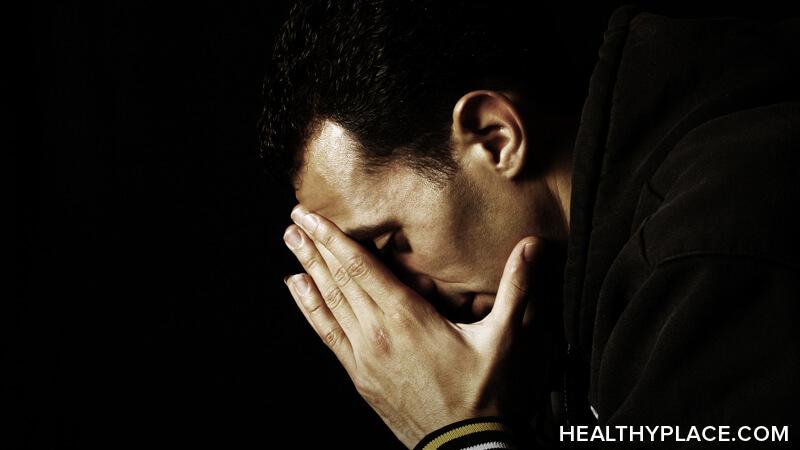I Expect Myself to Snap Out of It--Schizoaffective Disorder

Sometimes, I expect myself to just snap out of it: it being my schizoaffective anxiety. This is problematic for several reasons. First, it reeks of self-stigma—to the point where I would say it is a form of self-stigma. What’s even worse, it can block me from doing the necessary hard work in therapy to get better.
Why I Wish I Could Just Snap Out of It
Sometimes I hope my schizoaffective disorder will magically go away.
“Just snap out of it.”
It’s one of the most dreaded things someone with a mental illness such as schizoaffective disorder can hear. It’s right up there with, “Just get over it.”
It’s normal in the morning to wake up with hopes that you will have a good day—I would say that qualifies with the dreaded word “normal.” And people with schizoaffective disorder have good days and bad days, just like everyone else.
However, sometimes I wake up with the hope that I will have magically gotten better. Granted, this usually happens when I’m going through a medication change, and it’s reasonable to hope that a medication change will make you better. But, while medication is key in treating schizoaffective disorder—and I can’t stress enough that medication is crucial in treating mental illness—I personally have found that I’m doing better when I’m taking medication and learning and using cognitive behavioral therapy (CBT) and/or dialectical behavior therapy (DBT) skills. Cognitive behavioral therapy seeks to change your mood by changing the way you think, and DBT teaches that you should accept your circumstances before expecting to change them.
I guess what I’m trying to say is that, while medication is intrinsic to healing, if you have a serious mental illness, as with any other illness, you need to first accept that you have the condition, accept that medication will help a lot but understand that there probably isn’t a magic pill to will make your illness go away. That leaves some lifestyle changes to fill the gap. One or more of the lifestyle changes may involve therapy such as CBT and DBT. In other words, be proactive.
Exercise Is Important in Treating Schizoaffective Disorder
I’ve found I need to get exercise to stay balanced, too. Here is a way I really get into “snap out of it” thinking. Right now, it’s winter. We’ve just had several snowstorms in the Chicago area where I live, and I’m not getting any meaningful exercise, even though I know I need to. I would join a gym, but I don’t want to spend the money. Besides, if it’s nice enough, I’m motivated to pursue my favorite form of exercise: go for a long walk.
My schizoaffective anxiety is very debilitating. It takes so many options off the table. I feel cornered by it. Can you blame me for just wanting such an illness to magically disappear? But, I won't snap out of it, as much as I wish I could. So, as I’ve been taught in DBT, I accept it, take my medication, and create new strategies and neural pathways to wellness with the skills I am learning.
Do you ever wish you could snap out of it?
APA Reference
Caudy, E.
(2019, January 31). I Expect Myself to Snap Out of It--Schizoaffective Disorder, HealthyPlace. Retrieved
on 2026, March 5 from https://www.healthyplace.com/blogs/creativeschizophrenia/2019/1/i-expect-myself-to-snap-out-of-it-schizoaffective-disorder
Author: Elizabeth Caudy
I suffer from Schizoaffective Disorder. It is an awful illness and would not wish it on anybody.
Dear Sandra,
Thank you for your comment. You are right, schizoaffective disorder is an awful illness. I've been having a particularly hard time with it lately, but I try to focus on the things that bring me peace. I hope you can focus on the things in your life that bring you peace, too. Take Care, Elizabeth
"Just get over it" - this is such a truly common thing for people with SD to feel, probably more common than many people realize. This is such a helpful, honest, and insightful read. It's wonderful to see this kind of honesty. Thank you for sharing.